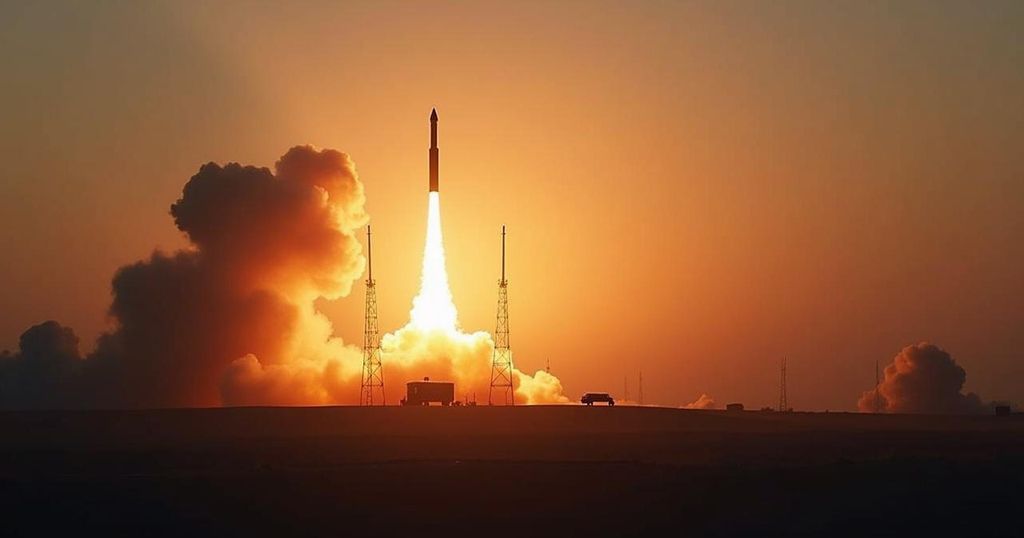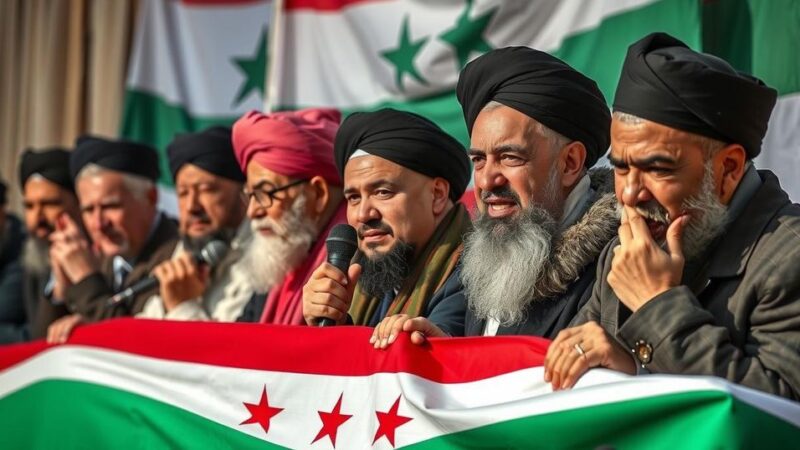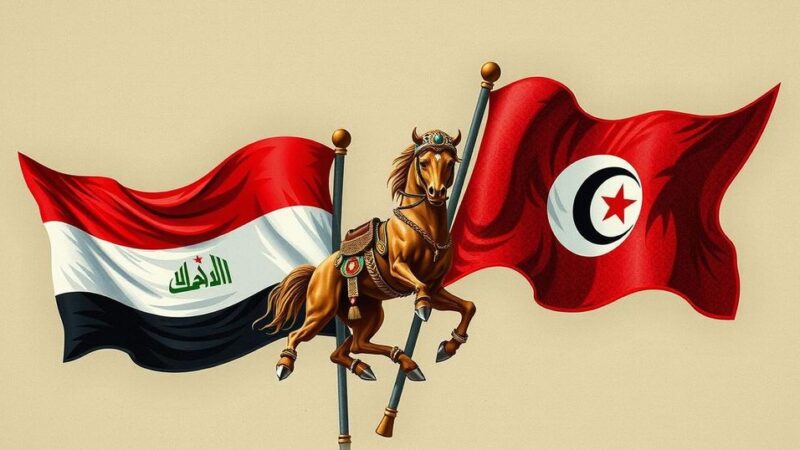Iran has launched ballistic missiles at Israel, reportedly in retaliation for the killings of Hezbollah and Hamas leaders. The attack did not target U.S. forces in the region. Israel has urged citizens to take shelter as explosions have been reported in Tel Aviv and nearby areas. U.S. President Joe Biden has expressed readiness to assist Israel, indicating heightened military tensions could have broader implications for the region.
Iran’s Islamic Revolutionary Guard Corps (IRGC) has reportedly launched multiple ballistic missiles targeted at Israel, marking a significant escalation in hostilities between the two nations. According to sources cited by The Washington Post, U.S. military personnel stationed in the Middle East were not aimed at during this missile assault. Previous attacks from Iraqi groups linked to Iran have already targeted U.S. military bases in Iraq and Syria. Al Jazeera, reporting from Jordan, indicated that the missiles traversed the sky over Amman, with several explosions audible in the surrounding area. The Israeli Defense Forces have officially confirmed the missile strikes and encouraged citizens to maintain vigilance and take shelter. Multiple salvos have been observed, resulting in explosions over Tel Aviv and east Jerusalem. Sirens have been activated in Jordan, indicating a broader regional alarm. Although prior alerts were issued to Israel about a potential attack, officials were reportedly caught off-guard by its immediacy. Israel’s security cabinet is currently convening in a secure location to assess the situation further. Iran has publicized that this missile strike is a reaction to the recent assassinations of key figures connected to Hezbollah and Hamas. The IRGC stated, “In response to the martyrdom of Ismail Haniyeh, Hassan Nasrallah, and [IRGC commander Abbas] Nilforoushan, we targeted the heart of the occupied territories.” Furthermore, Iran’s mission to the United Nations justified the strike as a legitimate action in light of Israel’s alleged incursions against Iranian interests and sovereignty. In response to the heightened tensions, Jordan’s state news agency has temporarily suspended air traffic as a precaution. Concurrently, reports indicate that operations at Ben Gurion International Airport in Israel have also been halted. The Israeli military has advised citizens to remain in secure locations until the situation stabilizes. Reports of additional missiles being intercepted were made, coupled with audible explosions in the atmosphere, prompting official warnings and military communications. Prominent Israeli officials responded promptly, with the far-right finance minister warning that Iran would face consequences akin to those experienced by Gaza and Hezbollah following these actions. Local residents in Tel Aviv reported ongoing sirens and the continued need for shelter amidst the turmoil. United States President Joe Biden has also reiterated U.S. support for Israel, stating that the country is prepared to assist in defense efforts and safeguard American personnel in the region. This situation represents a dangerous and complex intersection of military, political, and international dynamics, with potential implications for regional stability and broader geopolitical relationships.
The recent missile attacks by Iran against Israel stem from escalating tensions that have long characterized the relationship between these nations. Iran’s military posture, especially through entities like the Islamic Revolutionary Guard Corps, reflects its strategic objectives and responses to actions perceived as threats to its sovereignty. The backdrop of previous violent encounters, including the killings of leaders from Hezbollah and Hamas, further complicates the regional landscape. The involvement of U.S. forces in the Middle East adds another layer of complexity, as these tensions could potentially draw in additional global powers and influence international relations in the area.
In conclusion, the missile strikes from Iran against Israel signify a critical escalation in hostilities, reflecting deep-rooted animosities and ongoing conflicts in the region. The international community, particularly the United States, is closely monitoring the situation and has pledged support for Israel. As both military actions and political rhetoric intensify, the potential for broader conflict becomes an evident concern, requiring careful diplomatic navigation to avoid further escalation.
Original Source: www.aljazeera.com







